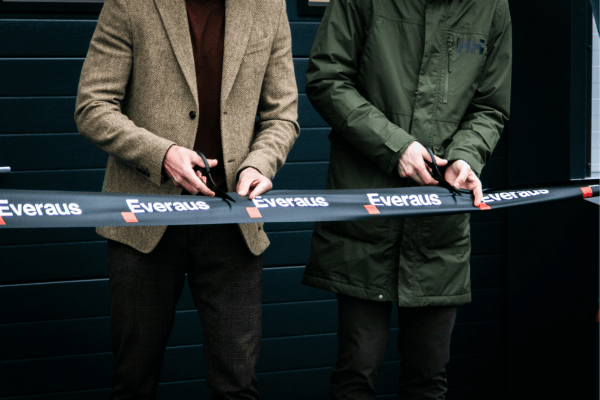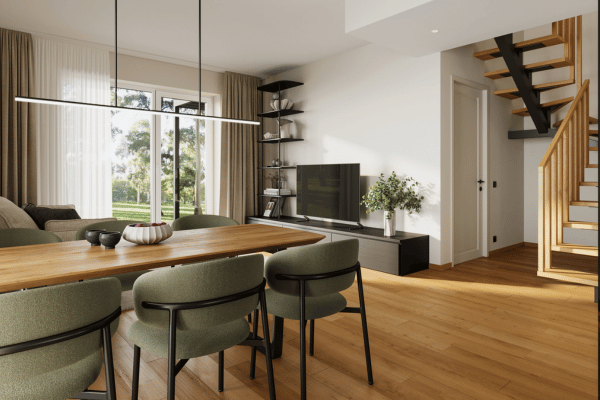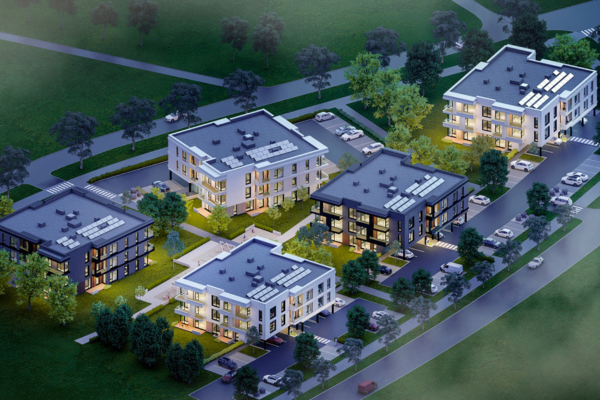Over the past 10 years, Everaus has built all of its new developments, including apartment buildings*, so as to be supplied with geothermal heating. Our years of experience with such heating confirm that it is up to 45% cheaper than other types on the market. As such, it is the most cost-effective way of keeping buildings warm. Moreover, geothermal heating is stable, can be relied on all year long and is environmentally friendly.
Our latest development, Luige Kodud, is a modern, energy-efficient residential complex on the outskirts of Tallinn. Here you’ll find four- and five-bedroom terraced apartments over two storeys as well as two- to four-bedroom apartments with a more standard layout. In addition to their matching architecture and fully integrated outdoor environment, these homes are linked by energy-efficient geothermal heating.
Geothermal heating: The most popular heating solution among home buyers for good reason
Geothermal heating in the form of ground-source heat pumps harnesses the solar energy stored in the ground, using it to heat rooms and produce domestic hot water. It is environmentally friendly because it taps a renewable source to provide energy for heating. As the bulk of energy is produced from renewable geothermal heat, there are minimal fluctuations in price. The system also needs electricity to operate (in order to pump the heat), but much less than usual: when using geothermal heat, 1 kWh of electricity can provide up to 5 kWh of heating energy. No less significant is the fact that geothermal energy is a domestic heat source. The advantages of geothermal heating in our climate are its reliability in all seasons, its safety (as it involves no combustion process), the low levels of noise it produces and the limited maintenance it requires.
To maximise the benefits of this heating, each apartment in the Luige development has its own remotely read meter – meaning each household can choose the temperature that suits them and doesn’t have to pay their neighbours’ heating bills as well as their own.
Find out more on the Delfi Moodne Kodu site.
*The exception being our apartment buildings in Keila, where connecting to the local heating network was obligatory.



